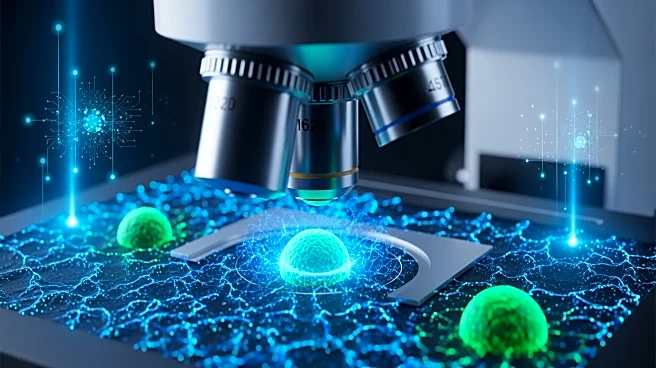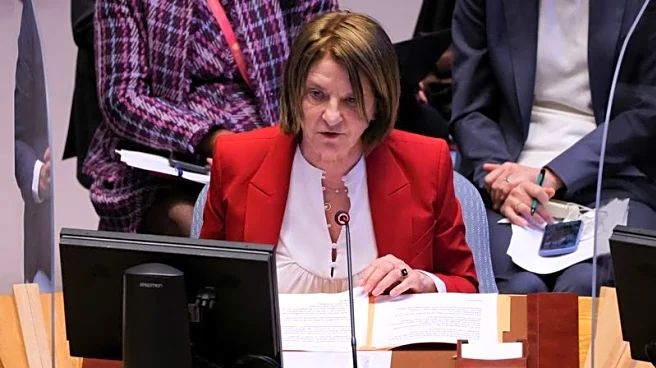What's Happening?
Israel has confirmed the return of the body of Israeli-American soldier Itay Chen, who was held hostage by Hamas. The remains were handed over as part of a ceasefire deal brokered by US President Trump.
Staff Sergeant Itay Chen was killed during the October 7 attack by Hamas on southern Israel and his body was taken to Gaza. The Israeli Defense Forces (IDF) have positively identified the remains and informed Chen's family. The Hostages and Missing Families Forum in Israel welcomed the return but emphasized that seven deceased hostages remain in Gaza. For each Israeli hostage returned, Israel has agreed to hand over the remains of 15 Palestinians, although identification is challenging due to the lack of DNA testing in Gaza.
Why It's Important?
The return of Itay Chen's body marks a significant moment in the ongoing conflict between Israel and Hamas, highlighting the complexities of hostage negotiations and the humanitarian aspects of warfare. This development may influence future diplomatic efforts and ceasefire agreements, as it underscores the importance of international mediation in resolving such conflicts. The exchange of bodies also reflects the broader humanitarian challenges faced in the region, with implications for both Israeli and Palestinian families affected by the conflict.
What's Next?
The ongoing negotiations and exchanges between Israel and Hamas are likely to continue, with international stakeholders closely monitoring the situation. The return of hostages and deceased individuals may pave the way for further diplomatic discussions aimed at achieving a more stable ceasefire. The humanitarian aspect of these exchanges could also lead to increased international pressure on both parties to address the needs of affected families and communities.
Beyond the Headlines
The ethical and legal dimensions of hostage exchanges in conflict zones are complex, involving considerations of international law and human rights. The return of bodies highlights the need for improved identification processes and humanitarian support in regions lacking infrastructure. Long-term, this situation may prompt discussions on the role of international organizations in facilitating such exchanges and supporting affected populations.










